Politicians Under Fire for ‘Poll Rigging’ Remarks Ahead of 2027 Elections
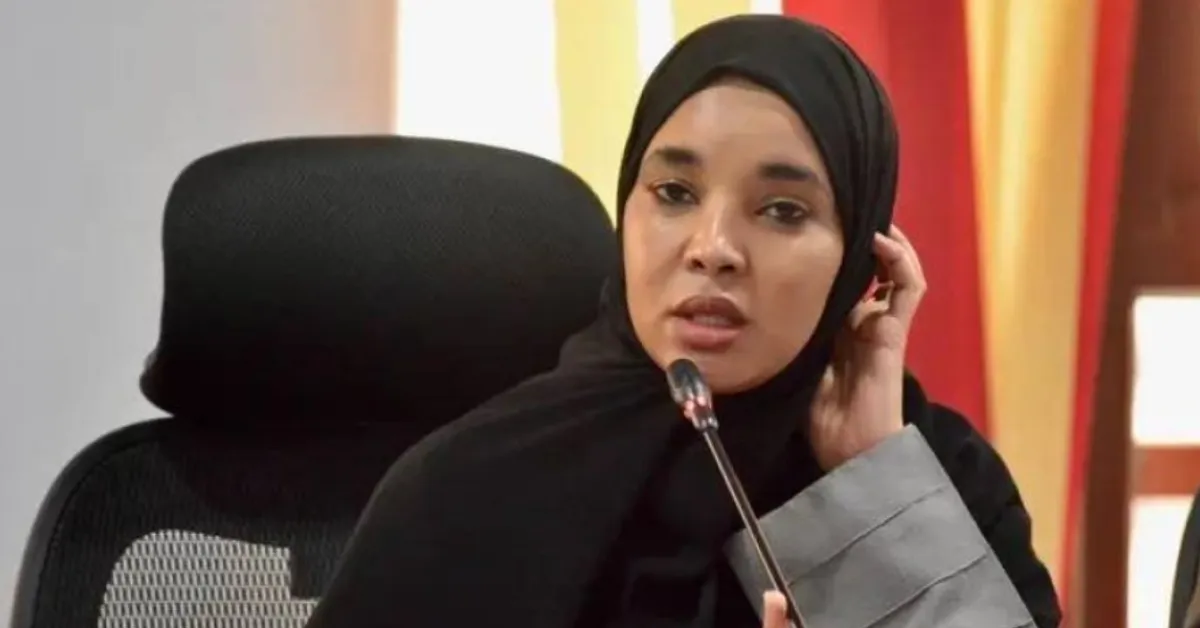
Barely a week into its new mandate, Kenya’s Independent Electoral and Boundaries Commission (IEBC) is embroiled in a political storm, grappling with allegations of electoral manipulation that threaten to undermine public confidence ahead of the 2027 General Election.
The controversy centres on claims by politicians allied to the ruling Kenya Kwanza coalition, who have suggested that the upcoming election outcome is predetermined. The immediate cause of the crisis stems from recent public statements made by Wajir Woman Representative Fatuma Abdi Jehow, who asserted that lawmakers from the North Eastern region would ensure President William Ruto’s re-election, "even if it means stealing votes".
Her remarks, which have circulated widely on social media, prompted swift condemnation from civil society groups, opposition leaders, and legal experts, who warn that such rhetoric erodes democratic principles and risks escalating political tensions. Jehow’s pronouncement is not an isolated incident.
Several other Kenya Kwanza-affiliated legislators have echoed similar sentiments, including Kapseret MP Oscar Sudi, Tiaty MP William Kamket, Dadaab MP Farah Maalim, and Baringo North MP Joseph Makilap. These leaders have openly declared that President Ruto’s re-election is non-negotiable, with some hinting at potential electoral engineering. Kamket even suggested Ruto could govern for 24 years, citing Baringo County’s political history as justification.
The remarks have generated widespread concern regarding the integrity of Kenya’s electoral process, particularly given the nation’s history of disputed elections and the ensuing violence that has often followed. The 2007 presidential election, which triggered widespread unrest and significant loss of life, remains a stark reminder of the potential consequences of perceived electoral fraud. In that election, both major parties were accused of manipulating vote tallies, rendering the final outcome unverifiable and plunging the country into crisis.
Against this backdrop, the IEBC’s credibility is under intense scrutiny. The commission’s recent reconstitution was itself marred by controversy, with critics questioning the transparency of the recruitment process and alleging political interference. The late inclusion of a commissioner and perceived affiliations with prominent political figures have fuelled suspicions that the commission may lack sufficient independence.
Chairperson Erastus Edung Ethekon, who was sworn in alongside six commissioners on 11 July, has attempted to reassure the public of the commission’s impartiality. In a formal statement, the IEBC denounced the rigging claims as “reckless and unacceptable”, urging Kenyans to disregard such utterances and reaffirming its commitment to free, fair, and credible elections. The commission has clarified that no election has been officially declared and that Kenya is not currently in an official campaign period, citing a 2023 Supreme Court ruling that limits its disciplinary powers to the election period.
Despite these assurances, opposition leaders remain unconvinced. ODM Secretary-General Edwin Sifuna has called on the IEBC to summon the MPs who made the rigging claims and demand explanations.
"The law does not permit anyone to undermine the outcomes of the next election," Sifuna said, adding that a failure to act could further erode public trust in the commission.
Former Attorney-General Justin Muturi has echoed these concerns, describing the remarks as “absurd” and warning that they risk delegitimising the IEBC. He has urged the commission to engage with stakeholders openly and begin rebuilding confidence in its operations. Former Interior Cabinet Secretary Fred Matiang’i also weighed in, cautioning the IEBC against entertaining “monkey business” in its preparations for 2027.
The commission faces a formidable task. With less than two years until the next General Election, it must address a backlog of operational challenges, including voter registration, procurement of election materials, and cleansing the voter roll of deceased persons. The delayed boundary delimitation exercise, mandated under Article 89 of the Constitution, further complicates matters. IEBC officials have previously warned that failure to complete this review could render the 2027 elections unconstitutional.
Moreover, the commission is grappling with financial constraints. Budget cuts and outstanding bills have hampered its ability to plan effectively, while the need to replace ageing electoral technology—such as the Kenya Integrated Elections Management System (KIEMS) and Biometric Voter Registration System (BVRS) kits—adds to the logistical burden. These challenges underscore the importance of institutional preparedness, a point emphasised by retired South African judge Johan Kriegler, who recommended that electoral commissions be fully constituted at least two years before a General Election.
Public sentiment remains divided. A recent survey by Infotrak revealed that only 26 percent of Kenyans express confidence in the IEBC’s ability to conduct credible elections in 2027, with scepticism highest in regions such as Nyanza and Nairobi. This trust deficit poses a significant threat to Kenya’s democratic stability, particularly as political rhetoric intensifies. Kenya’s electoral history is punctuated by moments of crisis, and the current climate suggests that the 2027 polls could be similarly contentious.
The IEBC must navigate a complex landscape of political pressure, legal constraints, and public scepticism, all while safeguarding its constitutional mandate. Chief Justice Martha Koome, in her address during the commissioners’ swearing-in, underscored the gravity of the commission’s role. She reminded the new team that the IEBC is not merely a bureaucratic entity but a guardian of Kenya’s democracy.
"Let the first word in your name—Independent—be your constant guide," she said, urging the commissioners to uphold integrity and resist political interference.Barely a week into its new mandate, Kenya’s Independent Electoral and Boundaries Commission (IEBC) is embroiled in a political storm, grappling with allegations of electoral manipulation that threaten to undermine public confidence ahead of the 2027 General Election.
The controversy centres on claims by politicians allied to the ruling Kenya Kwanza coalition, who have suggested that the upcoming election outcome is predetermined. The immediate cause of the crisis stems from recent public statements made by Wajir Woman Representative Fatuma Abdi Jehow, who asserted that lawmakers from the North Eastern region would ensure President William Ruto’s re-election, "even if it means stealing votes".
Her remarks, which have circulated widely on social media, prompted swift condemnation from civil society groups, opposition leaders, and legal experts, who warn that such rhetoric erodes democratic principles and risks escalating political tensions. Jehow’s pronouncement is not an isolated incident.
Several other Kenya Kwanza-affiliated legislators have echoed similar sentiments, including Kapseret MP Oscar Sudi, Tiaty MP William Kamket, Dadaab MP Farah Maalim, and Baringo North MP Joseph Makilap. These leaders have openly declared that President Ruto’s re-election is non-negotiable, with some hinting at potential electoral engineering. Kamket even suggested Ruto could govern for 24 years, citing Baringo County’s political history as justification.
The remarks have generated widespread concern regarding the integrity of Kenya’s electoral process, particularly given the nation’s history of disputed elections and the ensuing violence that has often followed. The 2007 presidential election, which triggered widespread unrest and significant loss of life, remains a stark reminder of the potential consequences of perceived electoral fraud. In that election, both major parties were accused of manipulating vote tallies, rendering the final outcome unverifiable and plunging the country into crisis.
Against this backdrop, the IEBC’s credibility is under intense scrutiny. The commission’s recent reconstitution was itself marred by controversy, with critics questioning the transparency of the recruitment process and alleging political interference. The late inclusion of a commissioner and perceived affiliations with prominent political figures have fuelled suspicions that the commission may lack sufficient independence.
Chairperson Erastus Edung Ethekon, who was sworn in alongside six commissioners on 11 July, has attempted to reassure the public of the commission’s impartiality. In a formal statement, the IEBC denounced the rigging claims as “reckless and unacceptable”, urging Kenyans to disregard such utterances and reaffirming its commitment to free, fair, and credible elections. The commission has clarified that no election has been officially declared and that Kenya is not currently in an official campaign period, citing a 2023 Supreme Court ruling that limits its disciplinary powers to the election period.
Despite these assurances, opposition leaders remain unconvinced. ODM Secretary-General Edwin Sifuna has called on the IEBC to summon the MPs who made the rigging claims and demand explanations.
"The law does not permit anyone to undermine the outcomes of the next election," Sifuna said, adding that a failure to act could further erode public trust in the commission.
Former Attorney-General Justin Muturi has echoed these concerns, describing the remarks as “absurd” and warning that they risk delegitimising the IEBC. He has urged the commission to engage with stakeholders openly and begin rebuilding confidence in its operations. Former Interior Cabinet Secretary Fred Matiang’i also weighed in, cautioning the IEBC against entertaining “monkey business” in its preparations for 2027.
The commission faces a formidable task. With less than two years until the next General Election, it must address a backlog of operational challenges, including voter registration, procurement of election materials, and cleansing the voter roll of deceased persons. The delayed boundary delimitation exercise, mandated under Article 89 of the Constitution, further complicates matters. IEBC officials have previously warned that failure to complete this review could render the 2027 elections unconstitutional.
Moreover, the commission is grappling with financial constraints. Budget cuts and outstanding bills have hampered its ability to plan effectively, while the need to replace ageing electoral technology—such as the Kenya Integrated Elections Management System (KIEMS) and Biometric Voter Registration System (BVRS) kits—adds to the logistical burden. These challenges underscore the importance of institutional preparedness, a point emphasised by retired South African judge Johan Kriegler, who recommended that electoral commissions be fully constituted at least two years before a General Election.
Public sentiment remains divided. A recent survey by Infotrak revealed that only 26 percent of Kenyans express confidence in the IEBC’s ability to conduct credible elections in 2027, with scepticism highest in regions such as Nyanza and Nairobi. This trust deficit poses a significant threat to Kenya’s democratic stability, particularly as political rhetoric intensifies. Kenya’s electoral history is punctuated by moments of crisis, and the current climate suggests that the 2027 polls could be similarly contentious.
The IEBC must navigate a complex landscape of political pressure, legal constraints, and public scepticism, all while safeguarding its constitutional mandate. Chief Justice Martha Koome, in her address during the commissioners’ swearing-in, underscored the gravity of the commission’s role. She reminded the new team that the IEBC is not merely a bureaucratic entity but a guardian of Kenya’s democracy.
"Let the first word in your name—Independent—be your constant guide," she said, urging the commissioners to uphold integrity and resist political interference.



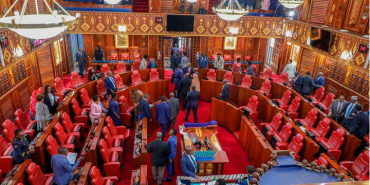
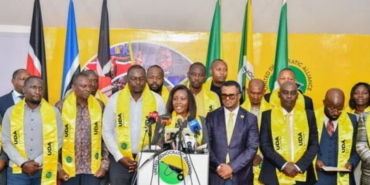
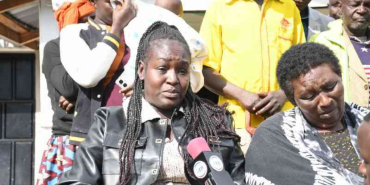
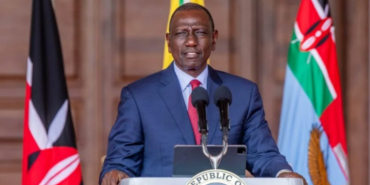
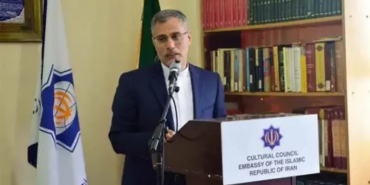
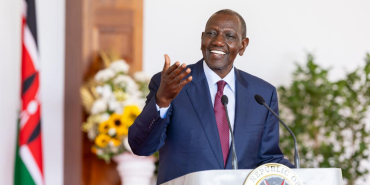




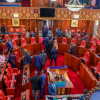
Add new comment